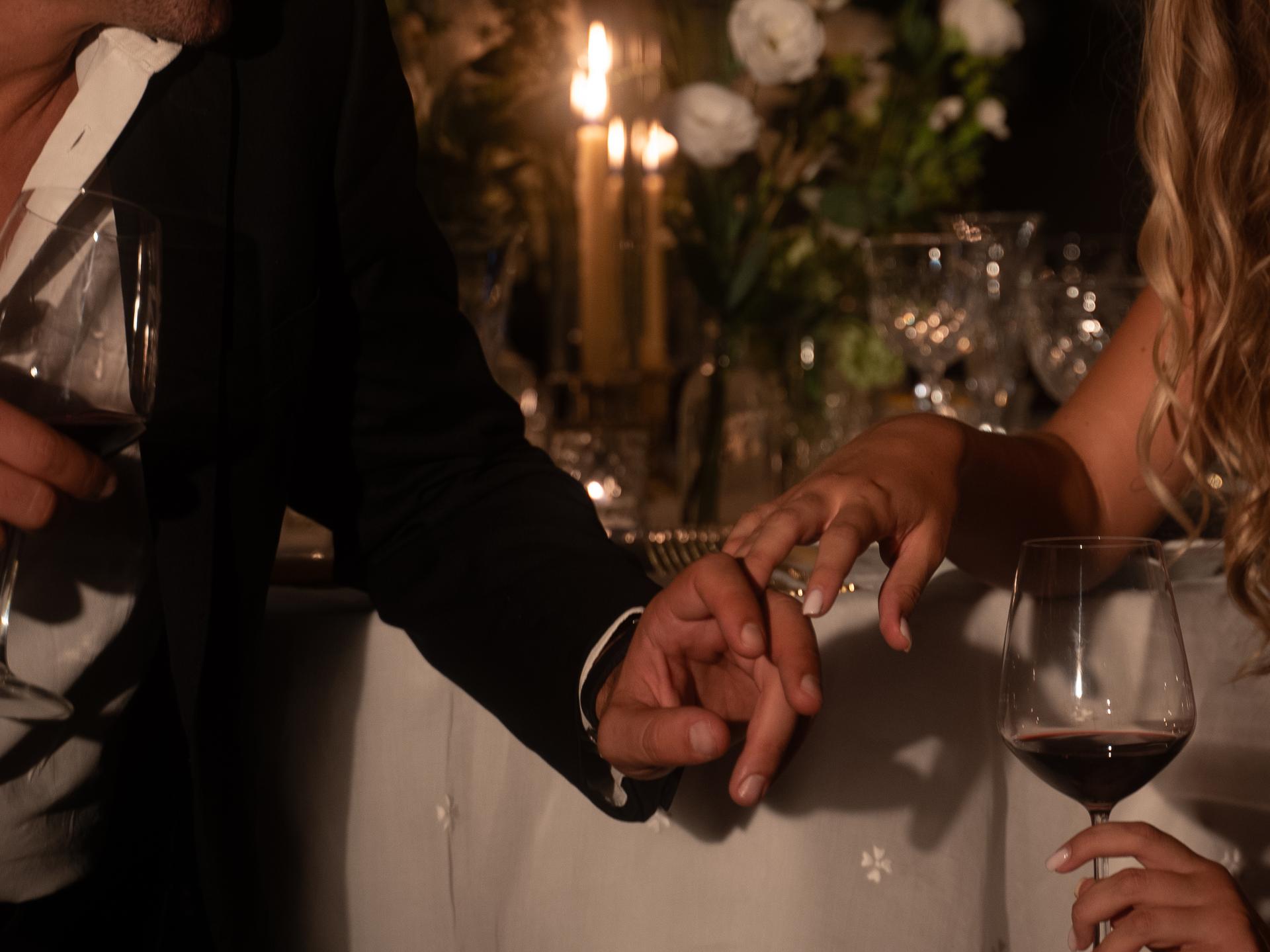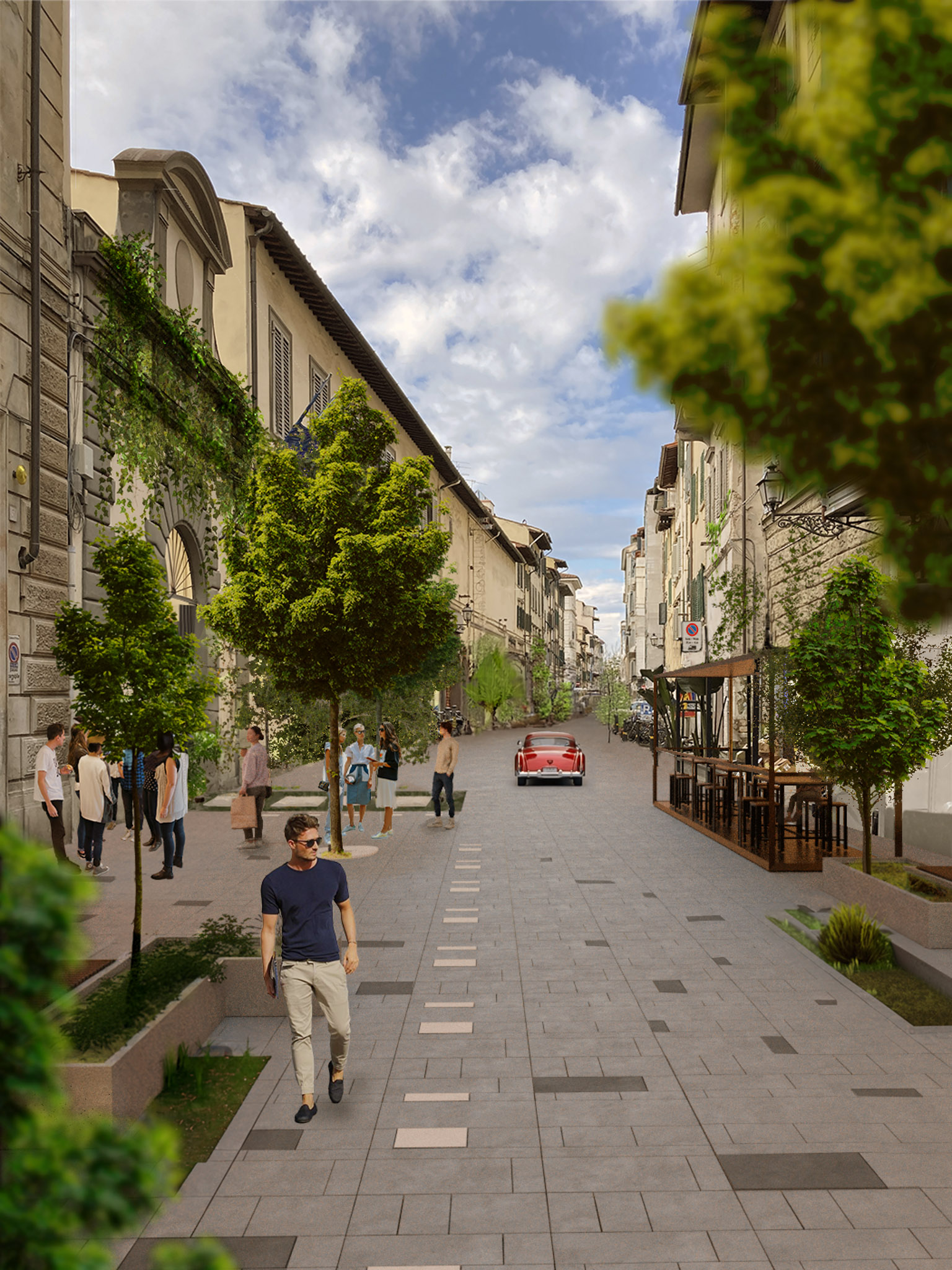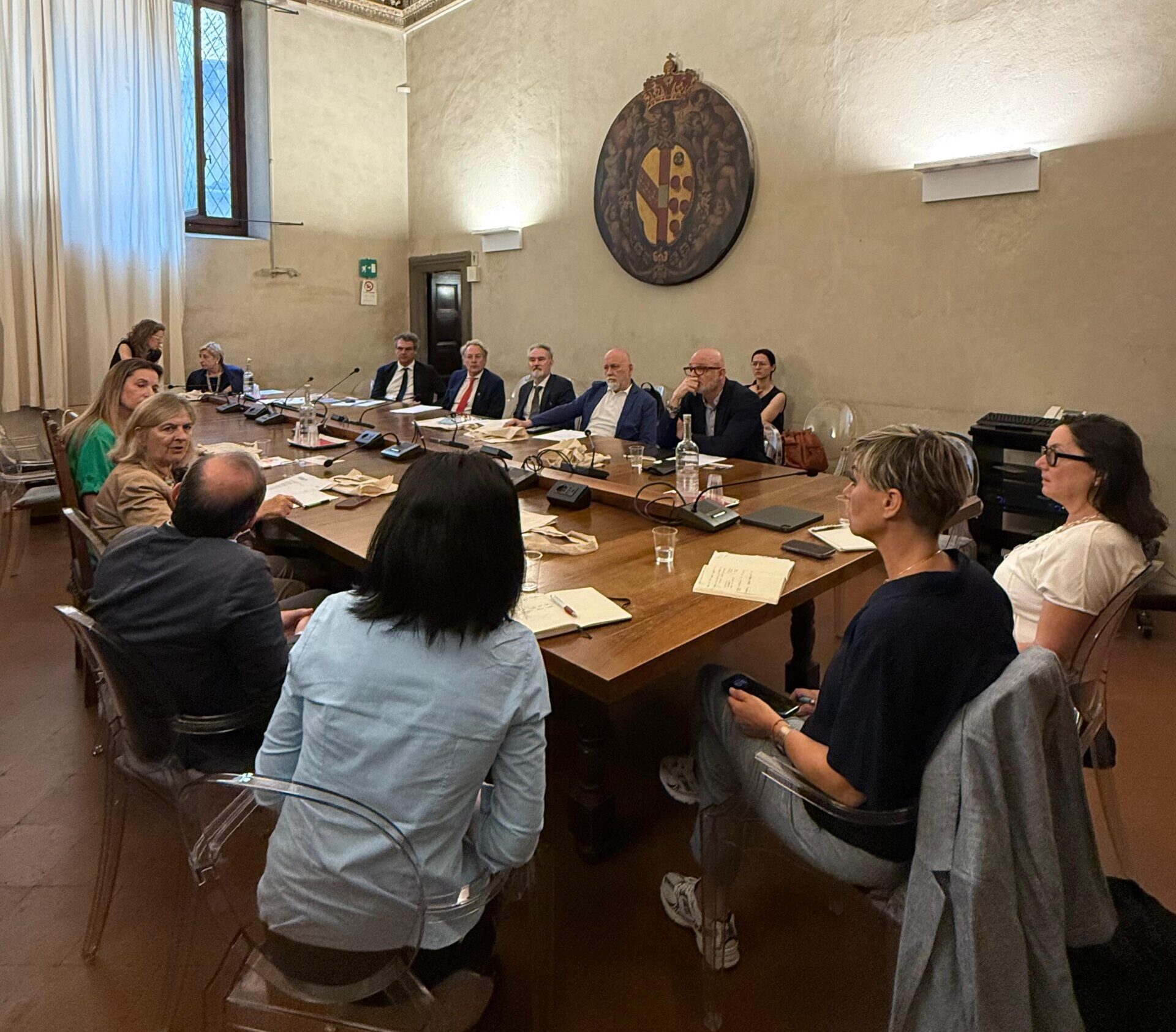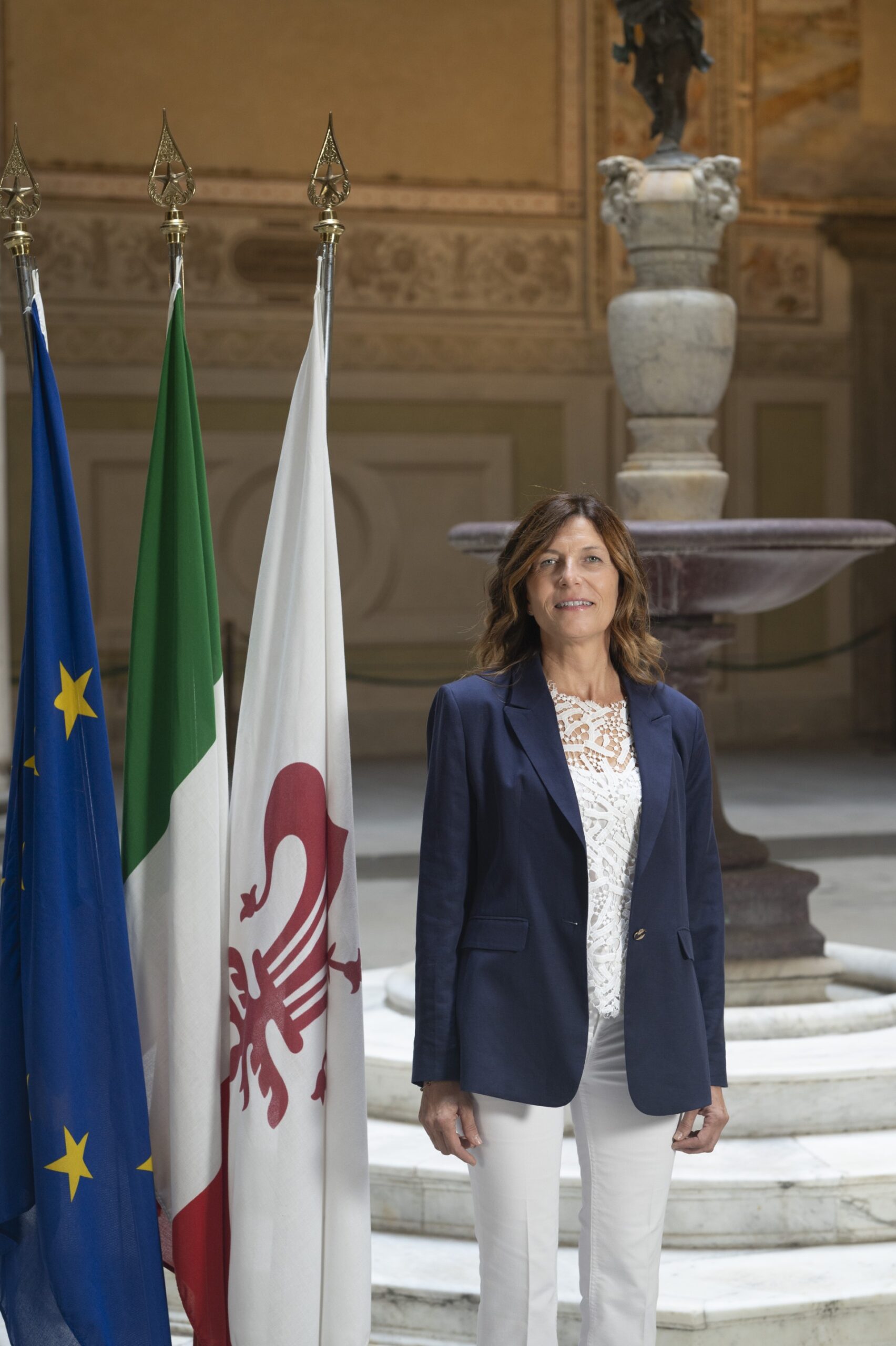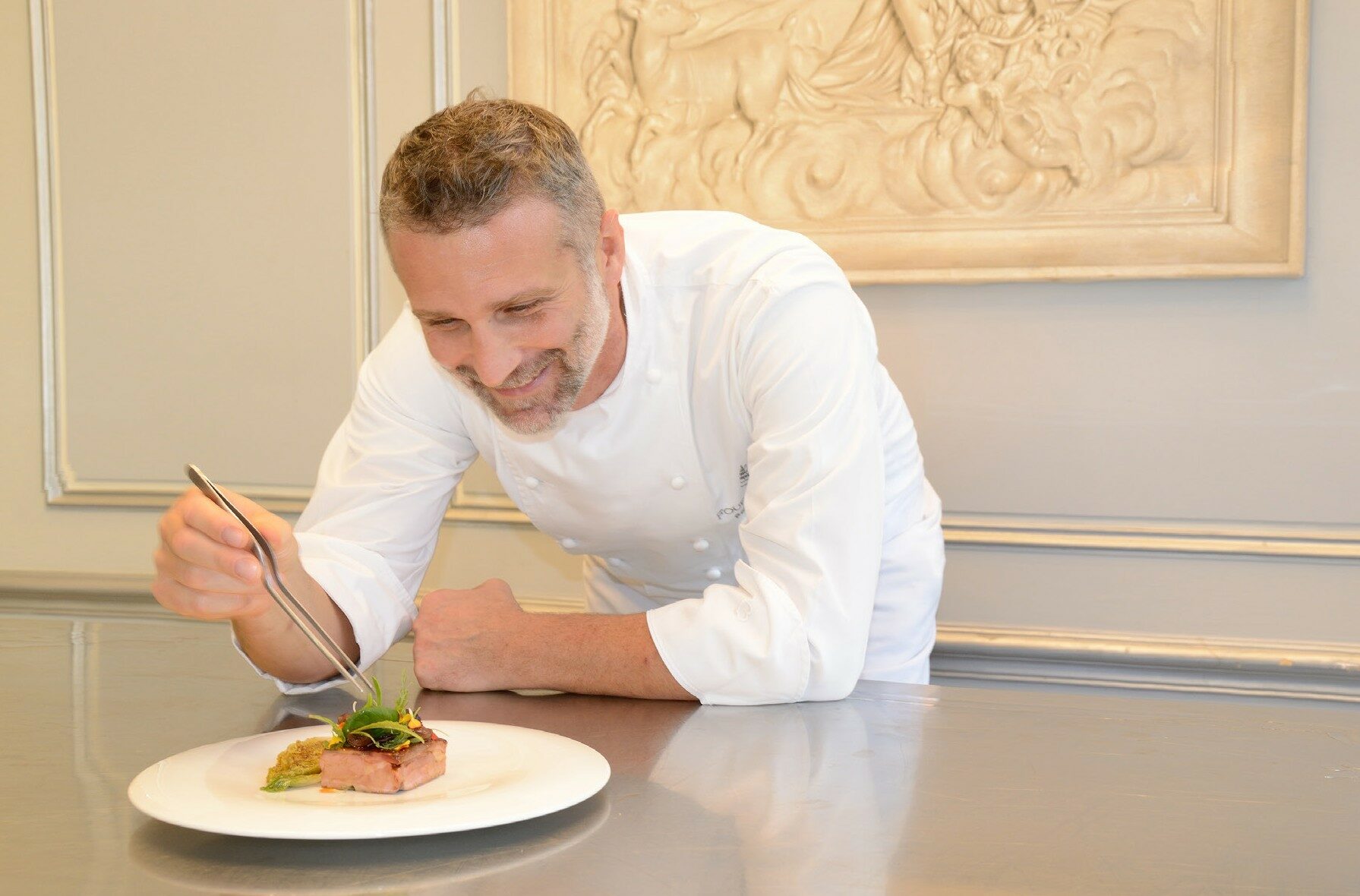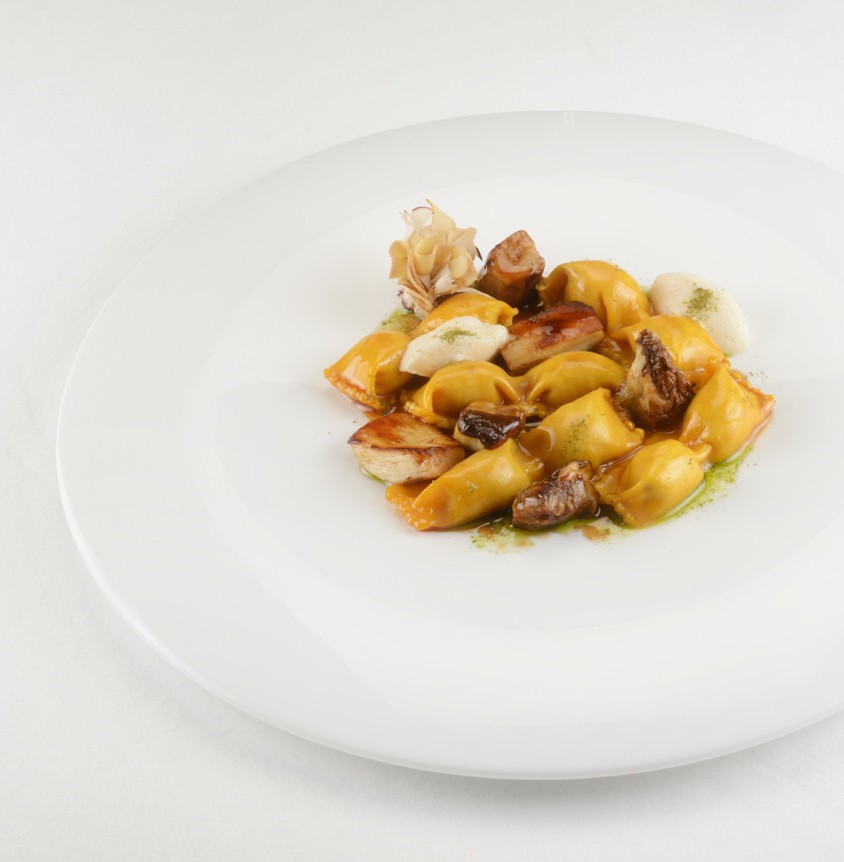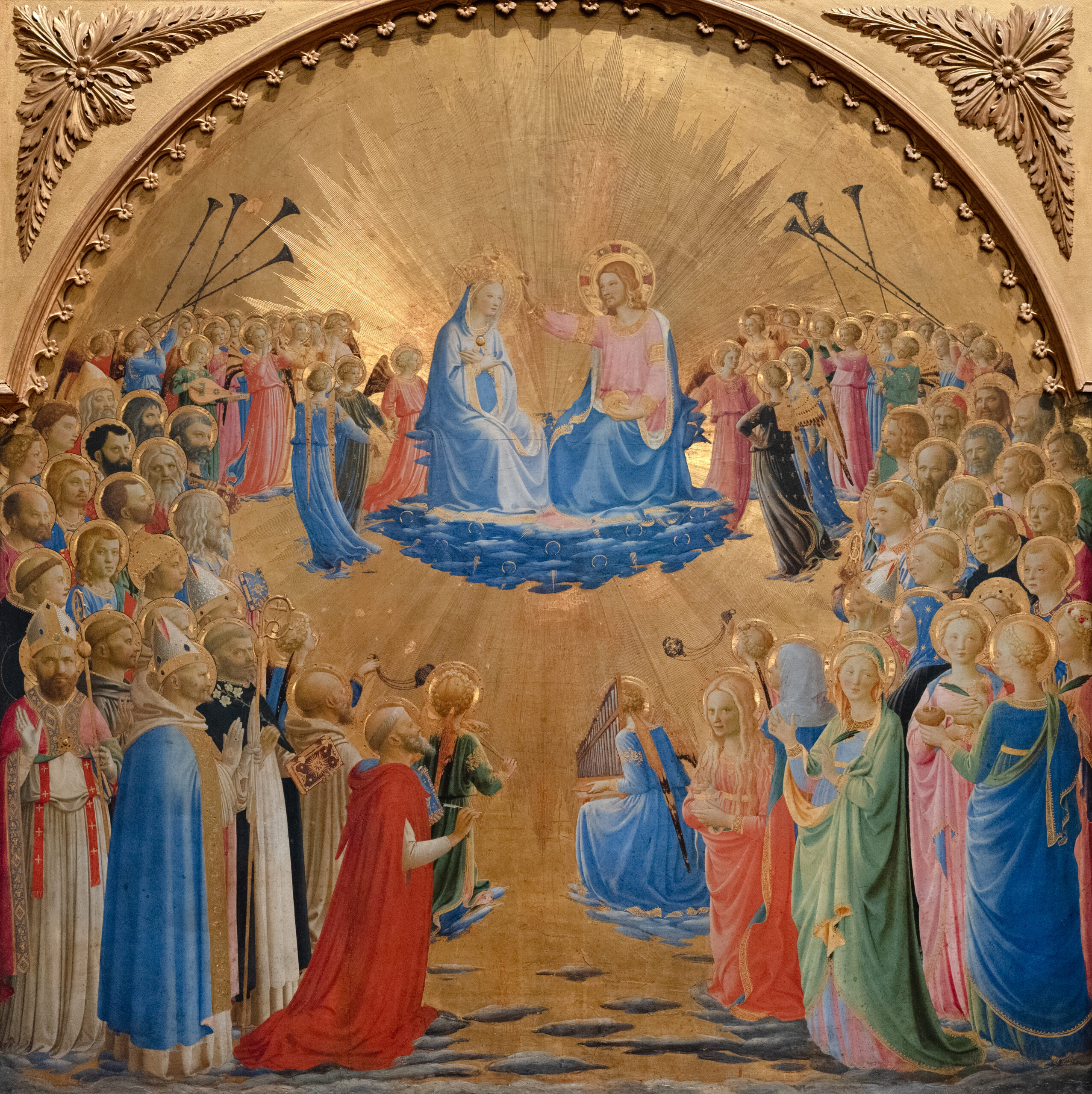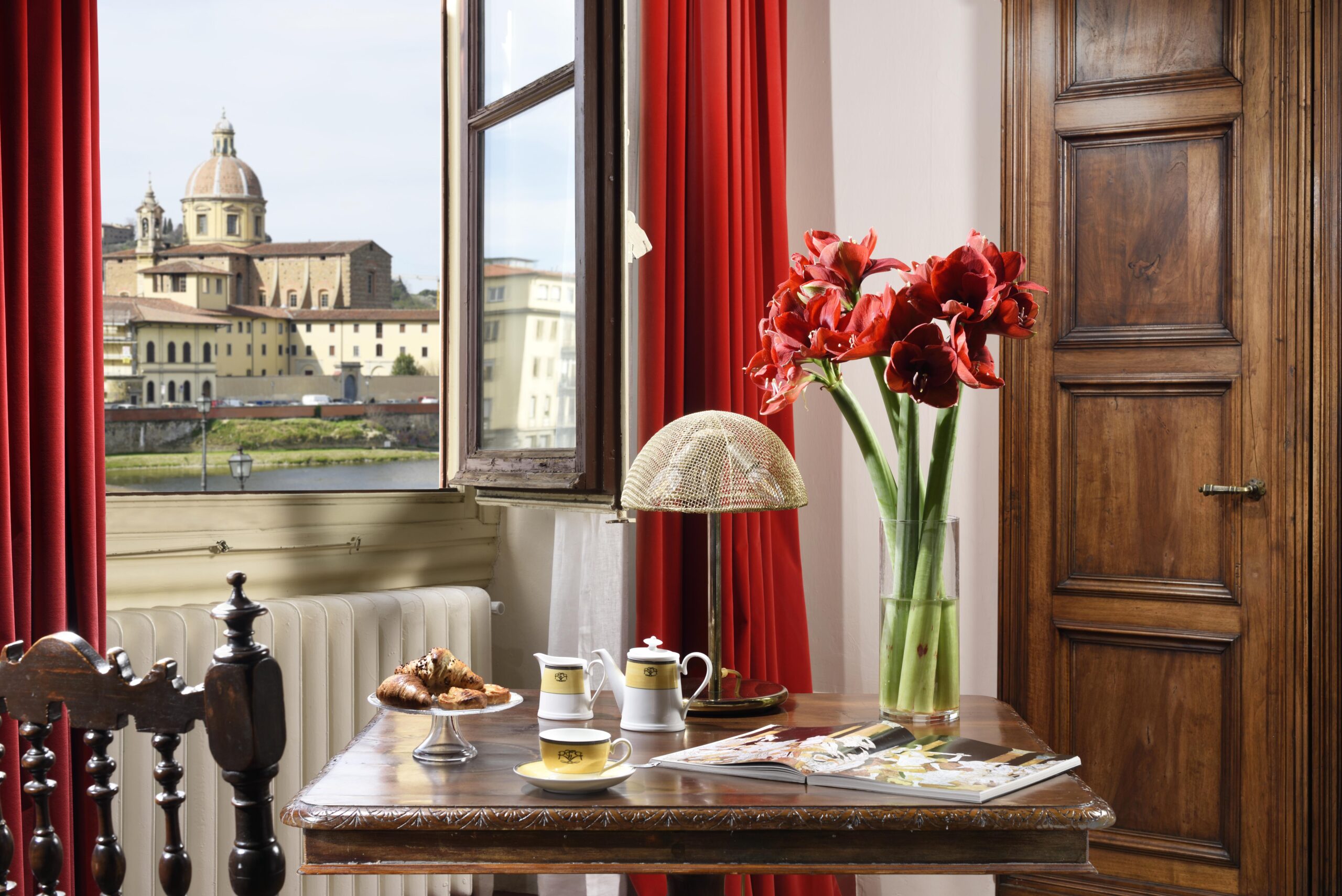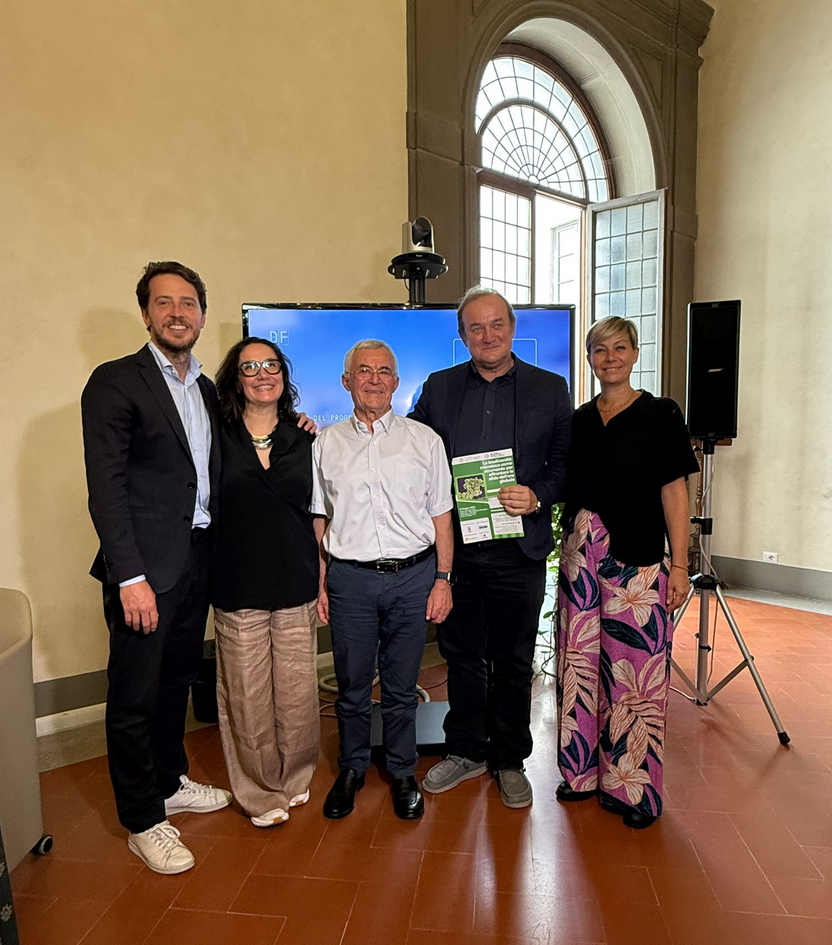To what extent do your Emilian roots influence your cuisine? And are you bringing a piece of Brazil to the Four Seasons kitchen?
My Emilian origins have definitely influenced certain aspects of my cooking, especially linked with the tradition of homemade pasta and memories of my grandma, who cooked on Sunday morning with me as a little helper, and the importance of quality ingredients. The time I spent in Brazil made me fall in love with fire, acidity, piquancy, plenty of fish and also lots of meat; the experience brought me back to central flavours and that’s what I’m aiming to communicate in my food at Il Palagio at Four Seasons Florence.
You’ve worked in Michelin-star restaurants all over the world: Paris, Tuscany and South America. Have your experiences overseas shaped you as a person and as a chef?
I have to say that I’ve learned something everywhere I’ve worked. During my time at Enoteca Pinchiorri, I learned what it meant to work in a high-level Michelin-star restaurant; from Alain Ducasse I learned professionalism and discipline; and in Brazil, I realized the importance of social relations and leadership, of creating a structure rather than a team. If I look at the changes that my cooking has undergone, I think that a chef should talk about the experiences he’s had during his career. In this sense, France was very important to understand the influence of gastronomy in society as a cultural profession, while Brazil gave me a totally new choice of products for my culture, and so I was stimulated to find out more about the vastness of South America through its culinary traditions. Now on coming home after a long time away, my eyes are open to Italy, which excites with its typical products, aromas, flavours and colours.
For a chef, does working for an international luxury hotel place limitations on your creativity? Or does it help your originality at all?
Having a structure like this allows you to offer clients a much broader selection while meeting many other needs, far beyond the scope of a “simple” restaurant. At the same time, managing all the F&B is complex. You start with breakfast in the morning and continue for 24 hours without overlooking anything. It’s a nonstop challenge that has always excited me.
Why did you choose to pursue your career here in Florence and how does traditional Florentine cuisine blend with your cooking style? At the end of the day, we imagine there are always guests who want to eat bistecca and pappa al pomodoro!
In the wake of the pandemic, I decided to return to Italy and this amazing opportunity presented itself to me, which I consider an honour, especially taking the place of Vito Mollica, who’s a dear friend. It’s always been my dream to work for the Four Seasons. My aim is to continue the outstanding work done to date, keeping more traditional dishes on the menu without revisiting them, using traditional local ingredients for new, more contemporary recipes. At the end of the day, there’s no better recipe for pappa al pomodoro than your grandma’s!
